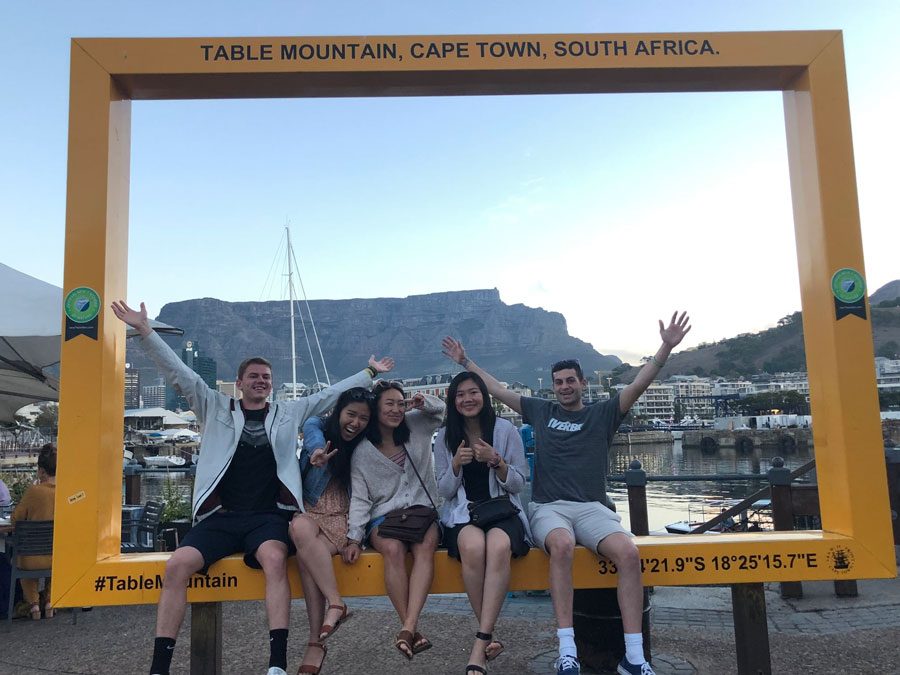Medill makes changes to Journalism Residency in South Africa, offering U.S. and European outlets as sites
Medill senior Katherine Liu on her Journalism Residency in South Africa last spring. Medill recently announced several changes to the journalism residency program in South Africa, including the addition of U.S. and European news outlets to South African ones.
October 15, 2019
Medill recently announced several changes to the Journalism Residency program in South Africa, including the addition of U.S. and European news outlets to South African ones.
The program, which takes place in the spring, offers students internship opportunities in Johannesburg and Cape Town, and ranges from seven to 15 students. In the more than 15 years the program has run, undergraduate students worked at South African news outlets, but the program will now offer some U.S. and European outlets with bureaus in South Africa.
Prof. Douglas Foster, one of the faculty advisors for the Journalism Residency program in South Africa, said graduate students have worked at international outlets the past 10 years, but the opportunity will open undergraduate students for the first time this spring.
“But whether we will, will depend on student interest,” Foster said. “It’s pretty much an individual placement based on the long term, employment objectives of the student and what’s needed on the side of the employer.”
Medill senior Sumin Woo, who went to South Africa for her journalism residency, said the opportunity to work in an international newsroom is something she would have found tempting — at first. Ultimately, she wouldn’t trade the experience she gained at a domestic newspaper.
“I genuinely feel like I was integrated pretty well with at least the professional side of what it was like to be a reporter in South Africa,” Woo said. “I’m not sure what my experience would have been like I’d worked in like a U.S. or European outlet that just had an office there.”
That experience working in a newsroom of a different culture has a learning curve, according to Foster. It’s one of the reasons students take a course the quarter before they leave about South Africa.
Foster said the class, which takes place in the winter, focuses on the questions that will come up for students when encountering issues of race, ethnicity, culture, language and gender identity.
“Any time you have a chance to get an international perspective and look back on the United States from a different angle, is clearly useful for journalists of any age or any type,” Foster said.
Woo said she was considering the JR in South Africa because she wanted a global perspective, especially as an aspiring international correspondent.
She said her trip to South Africa “knocked out two birds with one stone.”
Medill senior Katherine Liu, who also went on her journalism residency in South Africa this past spring, said she recommends the experience to anyone considering it.
“I would recommend anyone to do it even if you’re not considering a career in journalism just because it’s so different from studying abroad,” Liu said. “You’re so much more immersed in that kind of new environment and I think you really learn so much more.”
Liu, however, said she would not necessarily choose a European or American outlet over a South African one, especially since she feels Medill already takes “euro-centric” approach towards teaching.
In addition to learning about the new environment and culture, this year will be especially unique because of the 30th anniversary of the release of Nelson Mandela from prison, Foster said.
Foster said looking at South Africa’s new democracy is a meaningful way to reflect on the U.S. and the turmoil that still exists. He added that many students have made a connection between the racial struggles in the U.S. and the freedom struggles in South Africa.
“If we’re going to be a global school, we have to have many, many, many more global opportunities to do things like this,” Foster said.
Email: [email protected]



